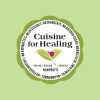
You know summer has arrived when Nectarines make their appearance. It has the taste of long sunny days and the hot breeze of a summer porch. Where did this gift of Mother Nature come from?
Nectarines, in essence, are peaches that lack the fuzzy skin. These smooth fruits first arose on naturally mutated branches on peach trees, which are native to China. The peach has been cultivated for thousands of years in China, since 2000 B.C., where they are a symbol of long life. Contrary to common myth, the nectarine is not the result of hybridizing a peach with a plum. Although there is no specific literature or imagery specifically of the nectarine, an educated hypothesis is that the mutant fuzzless peach did occur in peach orchards. Whether these nectarines were celebrated or destroyed is unknown; as they are edible peaches, it seems unlikely the fruits would not have been appreciated regardless of when or where they appeared on peach trees.
The history of the nectarine is closely intertwined with that of the peach. Any peach tree can form the mutation that causes some of its fruits to form without the characteristic felt-like skin. Fuzzless peaches, nectarines, randomly occurred in orchards wherever peach tree grew. In the USA by 1720, nectarines were mentioned in literature or correspondence to be growing in the peach orchards in Virginia. A.J. Downing noted that in the mid 1850s there were 19 different “races” or varieties of nectarines extant. They were being grown in California well before 1900.
The health benefits of nectarines include better cellular functioning and improved cardiovascular and digestive health. The antioxidant defense mechanism of nectarines may prove effective in combating major conditions such as obesity-related complications, macular degeneration, and cancer. Consumption of multi-nutrient rich nectarine helps in strengthening the immune system, promoting youthful skin and is an excellent snack option during pregnancy and otherwise.
The nectarine is a luscious nutrient-dense and low-calorie fruit. It has only 44 calories per 100gm. It offers an impressive array of powerful antioxidants and phenolic compounds along with dietary fiber. According to USDA National Nutrient Database, vitamin wealth of nectarines include vitamin A, vitamin B1, vitamin B2, vitamin B3, pantothenic acid, vitamin B6, folate, vitamin C, vitamin E, and vitamin K. Nectarines are excellent sources of potassium and other minerals such as phosphorous, magnesium, iron, zinc and calcium, without any harmful cholesterol.
Aids in Digestion
Presence of dietary fiber and the alkaline nature of nectarine makes it perfect for maintaining digestive health. The fiber content present in nectarine absorbs water, adds bulk to the diet, regulates bowel movements, and prevents problems like gastritis, constipation, and ulcers.
Anti-diabetic
Consuming whole fruits are linked to lowering blood sugar levels in the body, which eventually helps in treating diabetes. The fibers present in these fruits slows the absorption of sugar into the bloodstream.
Prevents Anemia
Anemia is a condition where there is a lack of red blood cells in the body. Iron is an essential mineral needed to produce red blood cells. Although nectarine is not rich in iron, the rich source of vitamin C found in nectarine helps to increase iron absorption in the body. Therefore, including nectarine in your diet prevents you from anemia.
Anti-cancer Potential
Nectarines contain chlorogenic acid, which may help in the prevention of various tumors and cancer such as colon cancer. Chlorogenic acid, as suggested by studies, possesses chemopreventive properties, which inhibit the proliferation of colon carcinogenesis. A study by Dr. Margaret Wright of the University of Illinois at Chicago shows qualitative evidence regarding the role of beta-carotene present in the Rosaceae botanical group (apples, peaches, nectarines, plums, pears, and strawberries) in providing protection against lung cancer.
Don’t forget- Nectarines are #4 on The Dirty dozen so this fruit must be enjoyed organic.
Happy Healthy Eating! Dana
https://www.organicfacts.net/health-benefits/fruit/nectarines.
html https://www.gardenguides.com/90122-history-nectarine.html









